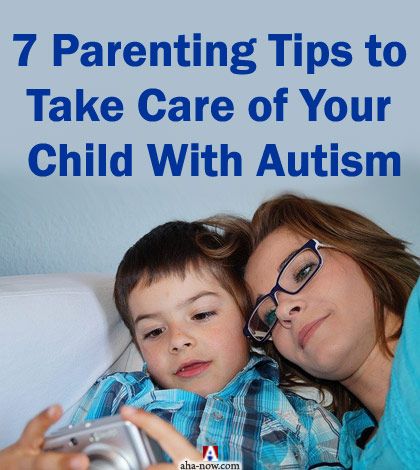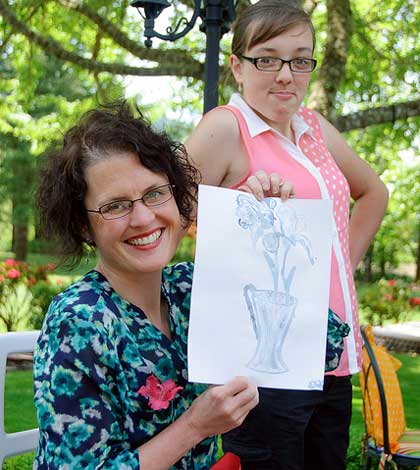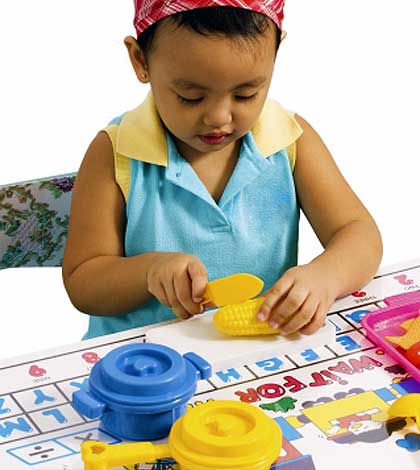7 Parenting Tips to Take Care of Your Child With Autism

Table of Contents
Autistic children need special care. As a parent, you need to educate yourself and know how to deal with such kids. Things become easier when you’re well informed and know the ways to carry out your responsibilities. Here are some parenting tips that you can use to take care of your child with autism. ~ Ed.
Learning that your child has an autism disorder probably made you worry about the needs that you may not be able to provide.
Cry when you need to but remember you still have a kid that needs you so don’t dwell on it for too long. Don’t feel bad about it, but rather see it in a way that at least you now know what is going on with your child than not knowing at all or being in denial.
It is normal to be worried and unsure about what help you can provide for your child, or sometimes even confused by contradicting treatment advice you heard or read online.
Learning about autism, educating yourself and getting involved in treatment help make things easier for you and your child.
I have these tips below to help you take care of your child with autism.
7 Tips for Parents to Take Care of Their Child with Autism
As a parent of an autistic child, you should always connect, reinforce good behavior, and maintain consistency with your child. Here’s more that you can do.
Don’t Be Afraid to Seek a Diagnosis
If you observe some developmental delays, take notice. Don’t wait to see whether or not it will change or improve. If you feel that something is wrong, it is best to consult a professional.
The earlier you start with the treatment, the higher the chance of having success and improvement in the symptoms of autism over time. Remember, the more you learn about this condition, the better your response will be in dealing with the situation. Knowledge builds confidence which ultimately helps your child by making appropriate and intentional decisions.
Early Intervention
Experts recommend treatment right after diagnosis. There is currently no cure for autism, however, early intervention increases the likelihood that your child will be able to go to school and participate in typical activities.
Think about your child’s future by acting on their condition while they are still young. Most importantly, never give up on them. They have a lifetime of opportunities to grow and develop their abilities, which is why providing parental support for them all throughout is an essential element of treatment.
Since you will be the primary person in contact with your child, you also need to find ways to effectively communicate and understand them. You are the best person to figure out the complexities of their behavior and to provide the right intervention when they are in a difficult behavioral situation. Your inputs can also be helpful if ever you need the assistance of a medical professional, caregiver and/or educator.
Create a Treatment Plan
Various treatments are available in responding to autism and it is sometimes hard to decide which approach is right for your child. Hearing conflicting suggestions from other parents in the same situation, teachers, and even professionals can also be a problem.
While deciding on a treatment plan, remember that each child on the autism spectrum is unique and no one treatment is applicable to the case. Some autism researchers believe there is a strong link between the functioning of the brain and the gut.
There are various theories about the effectiveness of diets and probiotics helping ease the symptoms. Find the best probiotic for autism that can help treat the digestive health condition of children with autism.
Kids with autism were also found to have an elevated number of pathogenic bacteria so giving probiotics would really be helpful.
Be Consistent
Consistency and maintaining a consistent environment promotes is the best way to reinforce learning and contribute to your child’s development. They often have trouble applying what they learned from school or their therapist at home.
Ask your therapist for some techniques that you can continue doing at home. Professionals recommend conducting the therapy in different places to encourage your child to transfer what they learned from one environment to another. It’s important to create a routine with regular schedules for therapy, meals, and bedtime.
Safety at Home
Some characteristics of a child with autism are having no fear of dangers and apparent insensitivity to pain. Put away all hazardous items they may ingest like cleaning products, it should be locked in a safe location like the basement and not in the open space where they can easily access.
Secure heavy furniture to the wall with straps or brackets. Make sure to always keep your door locked to prevent your child from leaving your home without your knowledge. Clip-on an identification card to your child with your family’s contact names and numbers and it should always be worn all the time in case they were able to leave the premises.
Connect with Your Child
Though it may be challenging to communicate with them when they never speak, remember that as a parent, you have a special bond with your child, especially the mothers. They speak a language; you simply have to pick up on the nonverbal cues they use.
Much like caring for an infant, you pay attention to the facial expressions, gestures, and the sounds they make when they are curious, excited, tired, hungry, or upset. Patience and consistency are important when you try to connect with your child.
When they see your untiring care, attention, and affection for them it will evoke an effort to reciprocate from. Never assume that they are emotionless or insensitive. Their emotional response and affection are just conveyed differently from the way normal children do, so be attentive, positive and open-minded when it comes to connecting with your child.
Acknowledge Good Behavior
Practice positive reinforcement by offering praise to your child when they act appropriately or whenever they pick up a new skill. Most parents, even therapists use rewards to encourage good behavior.
Simple gestures such as letting them play with a favorite toy reinforce good behavior by letting them gain something whenever they exhibit a positive trait. Positive reinforcement is considered as one of the most effective behavior management strategies that can be applied to children with autism in order to deal with their challenging behaviors.
Remember that you are reinforcing positive behavior in your child, so it is best to do away with material tokens and rewards after a few instances of good behavior and retain praise and compliments. This way, your child will learn that praise and compliments are also reinforcers and will gradually learn to do positive actions.
Wrapping It Up
I know that it is not an easy journey for both parents and the child to deal with developmental disorders.
The emotions can sometimes be overwhelming, especially the thought of what will happen to your child once you’re not there to care for him or her anymore or the feeling of not doing enough.
Be easy on yourself and always bear in mind the most important of all is that you are doing the very best you can for your child.
Over to you
Do you have a child with autism? How do you take care of your autistic child? Share your tips and experiences in the comments.
Disclaimer: Though the views expressed are of the author’s own, this article has been checked for its authenticity of information and resource links provided for a better and deeper understanding of the subject matter. However, you're suggested to make your diligent research and consult subject experts to decide what is best for you. If you spot any factual errors, spelling, or grammatical mistakes in the article, please report at [email protected]. Thanks.











In every 57 Children Born in United States, Autism is found in 1 🙁
I hope this article help the Parents, whose child is suffering with Autism 🙁
Thank you for sharing your knowledge.